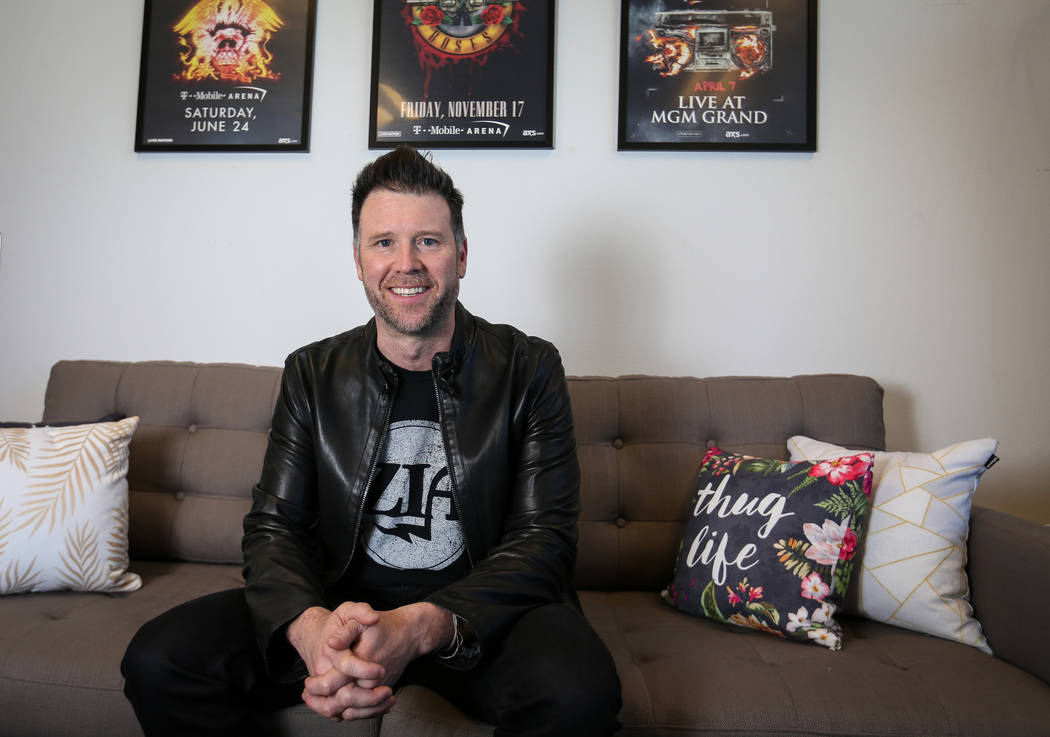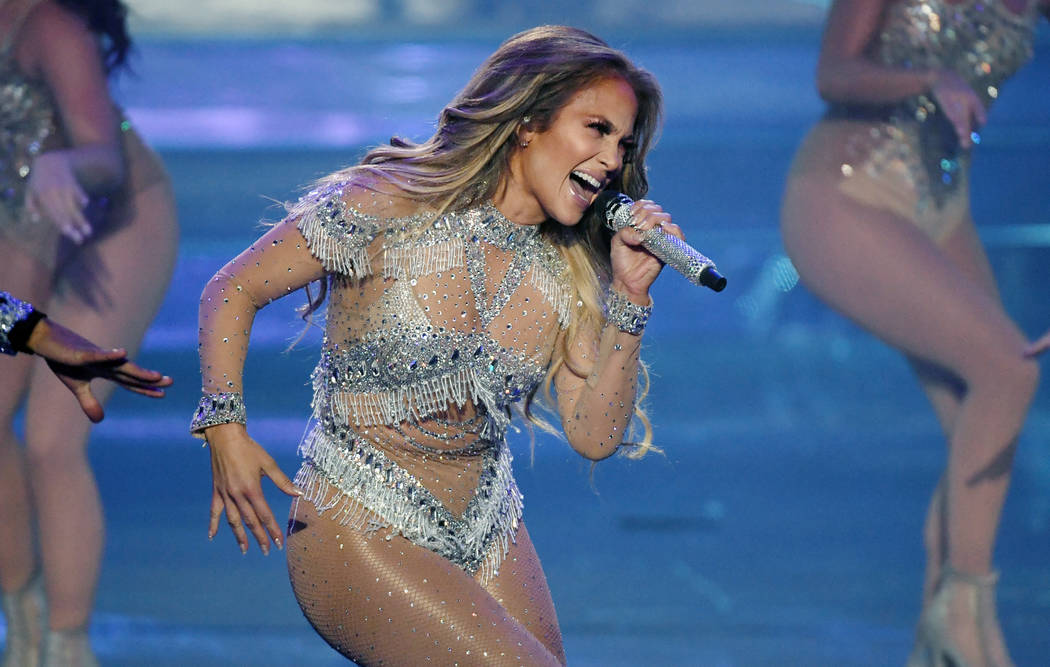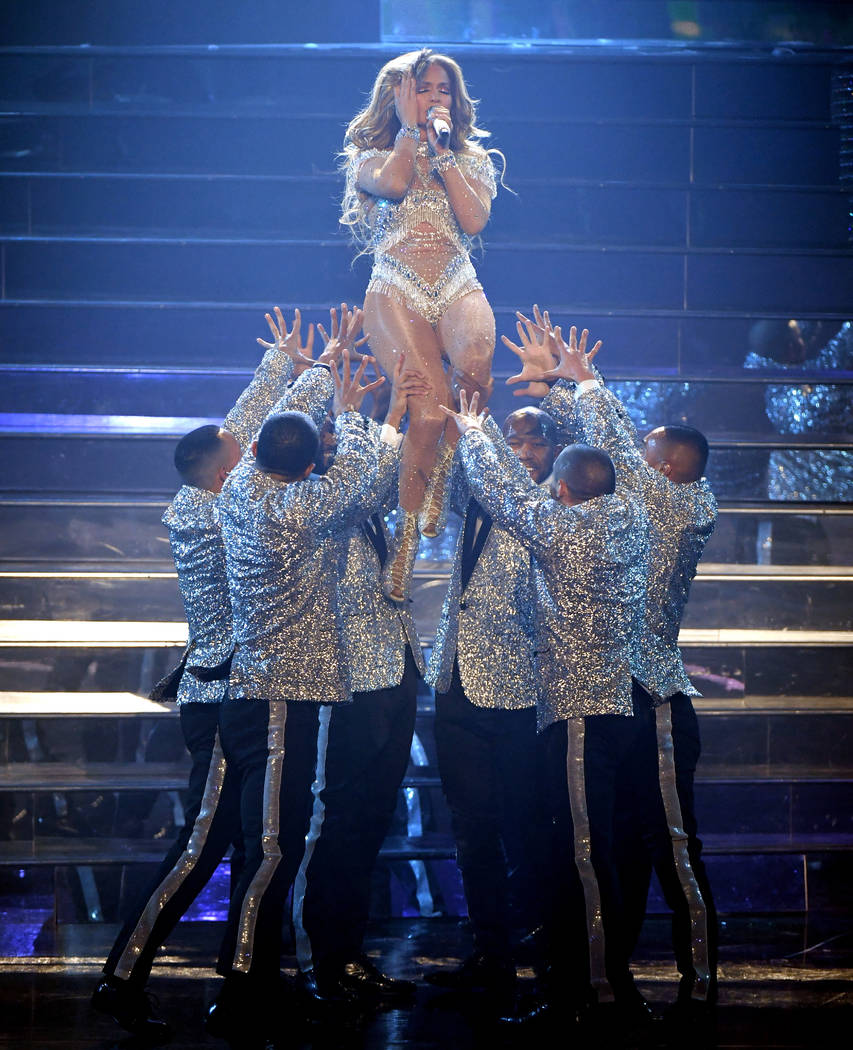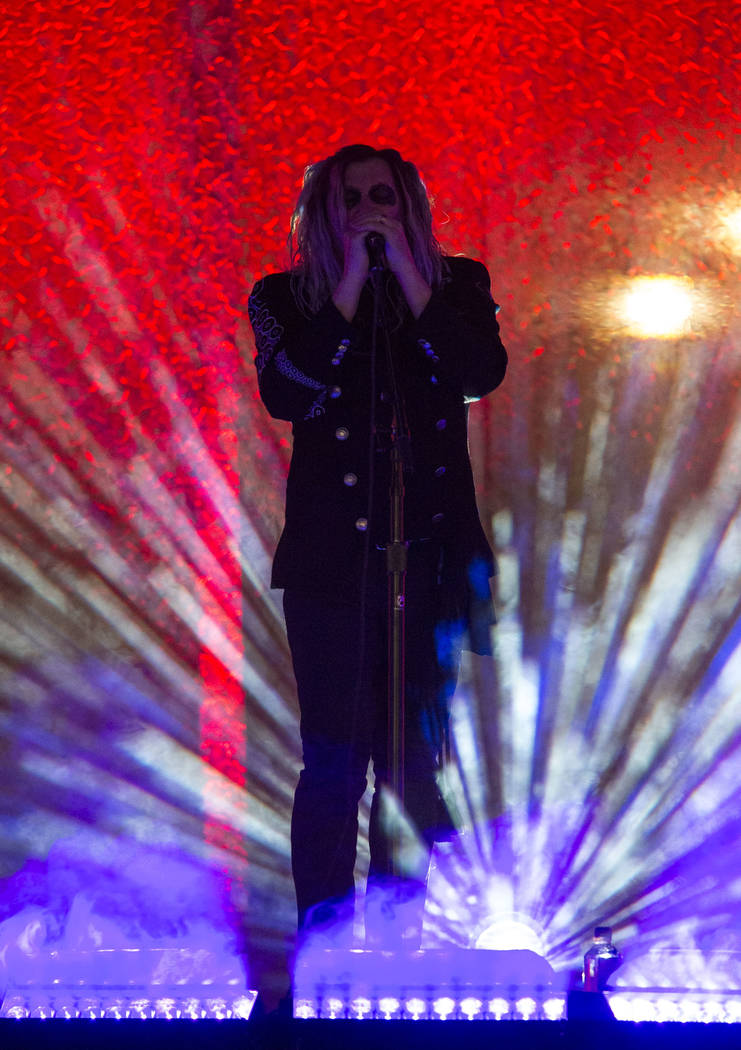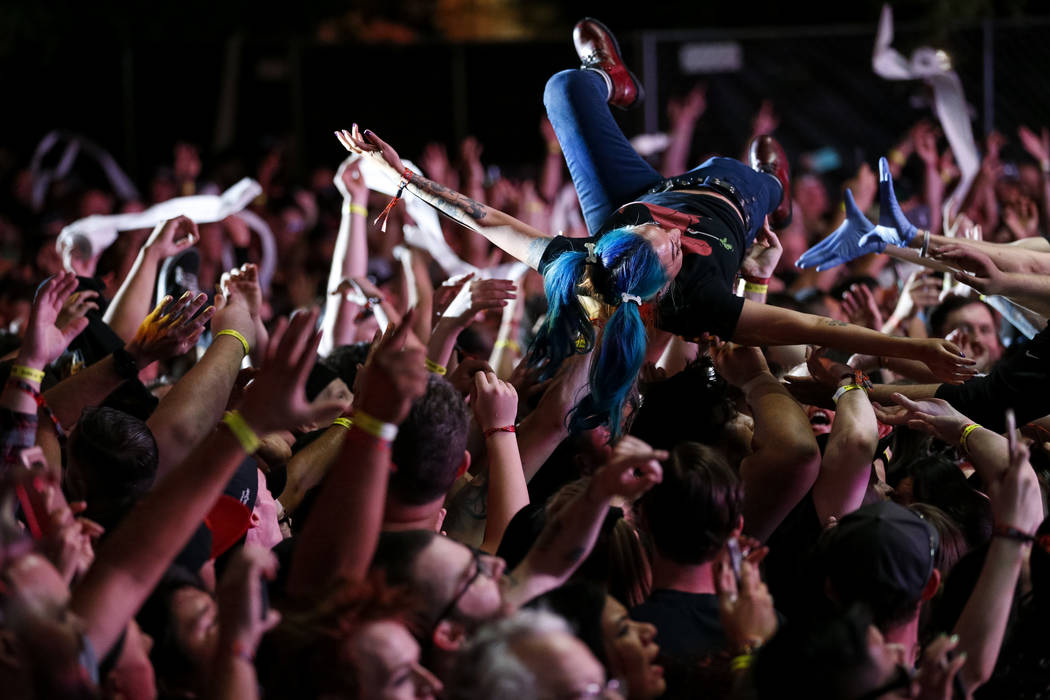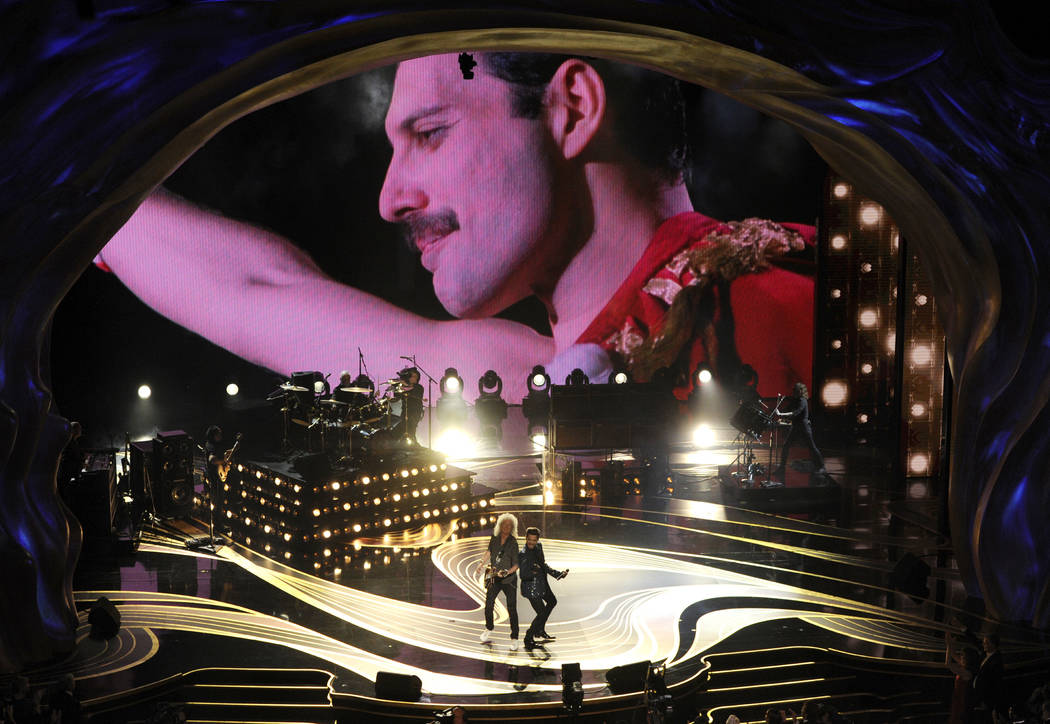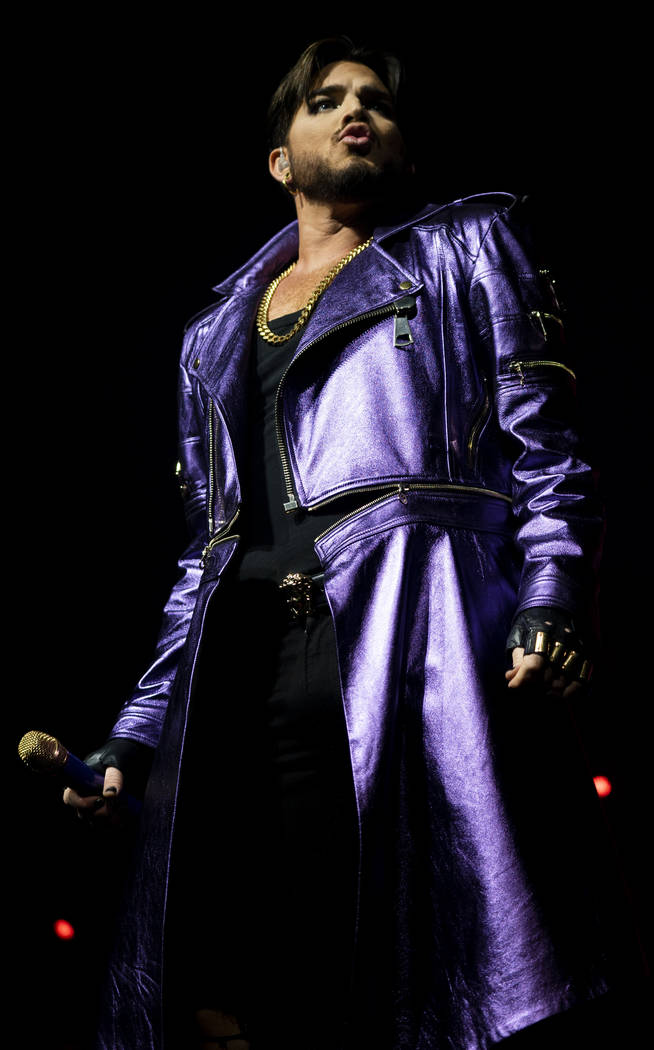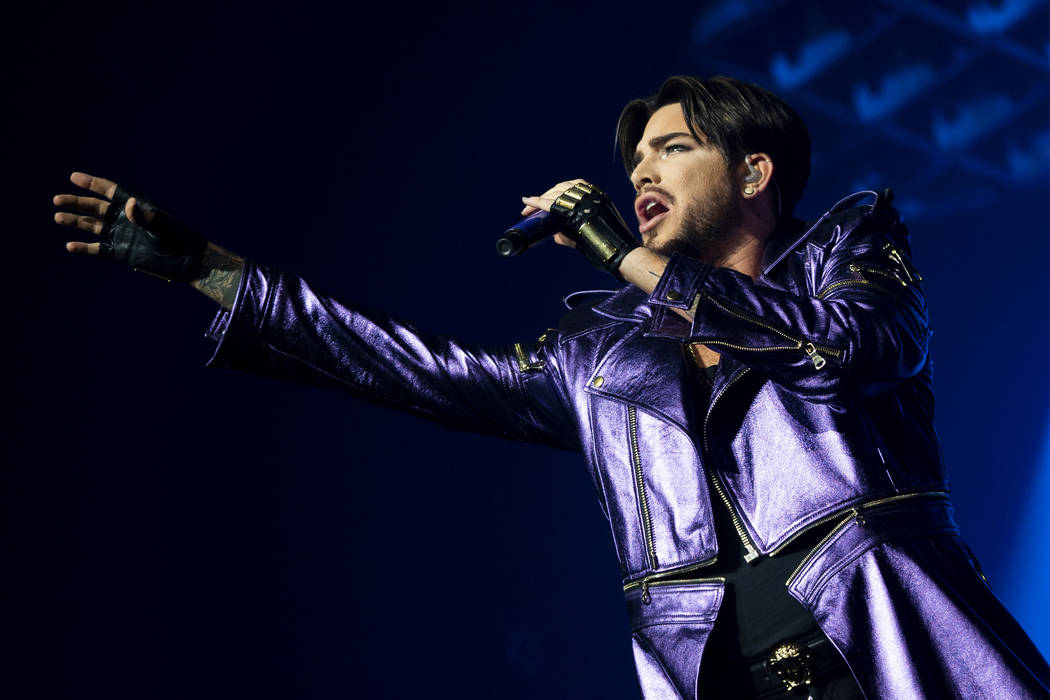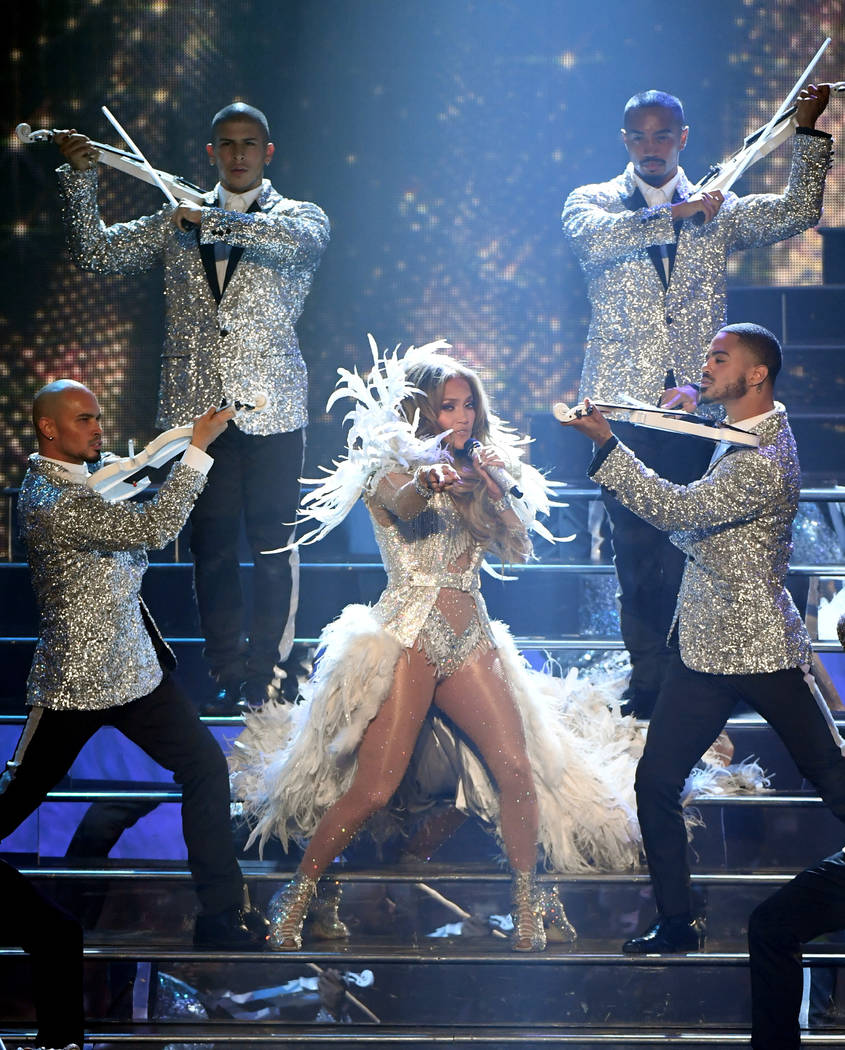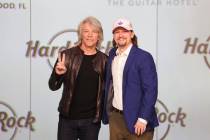Head of Live Nation Las Vegas talks residencies, rock festivals
Vegas Voices is a weekly series highlighting notable Las Vegans.
It was in the shadow of roller coasters in western Massachusetts that Eddie Money helped launch a career.
The classic rocker was the first act that a young Kurt Melien booked at Six Flags New England.
It was there that the future president of Live Nation Las Vegas began his career as a teenager, hiring the man who gave us all “Two Tickets to Paradise” to soundtrack pit stops between bumper cars and thrill rides.
A decade later, Melien would relocate to Las Vegas to serve as vice president of entertainment at Caesars Entertainment, before opening the local office of concert industry giant Live Nation in 2015.
In recent years, he’s overseen residencies by superstars such as Britney Spears, Jennifer Lopez and Queen + Adam Lambert and brought scads of acts to venues across town, from T-Mobile Arena to Zappos Theater at Planet Hollywood Resort to Park Theater at Park MGM. Melien has also spearheaded the development of the Las Rageous hard rock and heavy metal music festival, which will move from the spring to the fall this year for its third edition.
We recently talked with Melien about Las Rageous and more from the front lines of the Vegas concert business:
Review-Journal: What was the behind decision to move Las Rageous from spring to the fall?
Kurt Melien: It feels like festival season. And we like the idea that there’s multiple things happening in the market between iHeart (Radio Music Festival) and Life is Beautiful. We wanted to have some association with the other major festivals in the market, and so moving into that period made sense for us for that reason. Because the audience is so different from iHeart to Life is Beautiful to Las Rageous, it’s fun to talk about it all in a big way, because you’re not cannibalizing. We’re tapping different audiences, but it’s sort of like 1 + 1 + 1 = 5. That was the main driver.
You’re entering Year 3 of Las Rageous, which is always a pivotal one after spending the first two building the brand. Do you feel like the festival has found its footing?
Absolutely. We always had a three-year plan to keep it fairly consistent in its size and programming. We didn’t want to get distracted or bogged down in sort of reinventing the wheel. We really wanted to commit to a three-year plan, and that plan was to keep it two days, maintain the footprint as it is with the D and the Downtown Las Vegas Events Center, really try to grow the fan base, which we’re doing. We sold more tickets last year than we did the year before, and we expect to do the same thing this year when we go on sale in the spring. That’s the plan, then we’ll assess after this year whether we want to continue with the same business model or potentially try to grow it.
The Vegas music market has evolved so much in recent years. A decade ago even, this city was not the music festival destination market that it’s since become. What do you think has brought about this change?
I think the amenities and the environment are immensely important to a festival experience. I know that the Life is Beautiful team would echo this and probably say the exact same thing, that the location, the ambiance, the environment are crucial. With Life is Beautiful and Las Rageous, you’ve got this wild, downtown, inner city backdrop, but you also have thousands of hotel rooms seconds away from the front gate. It’s very uncommon to find that. There’s not a whole lot of festivals that have that kind of access, maybe Lollapalooza or Austin (City Limits).
Vegas feels like a much more music-driven town now, with residencies defining the city’s top entertainment options as much as anything.
The spread of the residency business was sort of like catching a fever a little bit — in a good way. What happened was that you had such success with Celine and then Elton and Britney. It was contagious, the energy, the excitement, from the fan standpoint, from a business standpoint and from an artist standpoint. I think it’s simply that that fever sort of overcame other categories of entertainment. I think the two great examples of that are at The Venetian, where instead of “Phantom of the Opera,” you have this collection of classic rock residencies, and then over at Wynn, instead of “ShowStoppers” or “Avenue Q” and others, you’ve got residencies. You needed the casinos, the promoters and the artists to get it, and then all of a sudden, it was like, ‘Poof!’ Once it started to spread, it really spread.
Are you wary of hitting a saturation point with all the residencies?
No, and here’s why. The music residency business is selling just over 2 million tickets a year, and we’ve got 42 million people visiting Las Vegas, so to me, the upside is potentially infinite. It really is about offering individual choices. Everybody has different tastes in music, and people want to see their favorite artists. As long as we continue to keep it fresh, I think it’s the opposite of making it feel saturated. If you’re continuing to bring new artists into the market, it’s pretty likely you’re going to continue to have people who are going to want to see those artists, because they’re new. We’ve tapped into something really special here.
The Review-Journal is owned by the family of Las Vegas Sands Corp. Chairman and CEO Sheldon Adelson. Las Vegas Sands operates The Venetian.
Contact Jason Bracelin at jbracelin@reviewjournal.com or 702-383-0476. Follow @JasonBracelin on Twitter.
Getting to know: Kurt Melien
Favorite sport
I played hockey growing up, so I thought it was so much fun to get the Knights here. I've got season tickets. I go to 20 games. I love hockey these days. Who doesn't? It's so much fun being in (T-Mobile Arena).
Newest Vegas discovery
I think what's happening in Chinatown is super cool. I think the restaurant scene in Chinatown is a blast. I'm really enjoying that, sort of working my way through.
Secret or unusual talent
I'm a pretty good juggler. I've challenged (entertainer) Jeff Civillico, who's a good friend, to a juggle-off and he has yet to accept.
How did you hone that talent?
Six Flags. You're working there and there's so much time and there's always these little balls around, whether it's for games or merchandise or whatever. You'd have so much free time, that's sort of what you do with your hands.
Favorite movie
I love "Back to the Future." It's a seminal moment from the '80s right smack when I was growing up.



